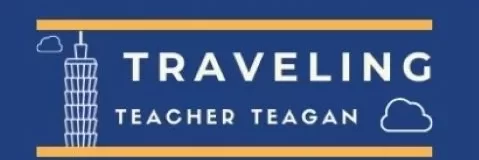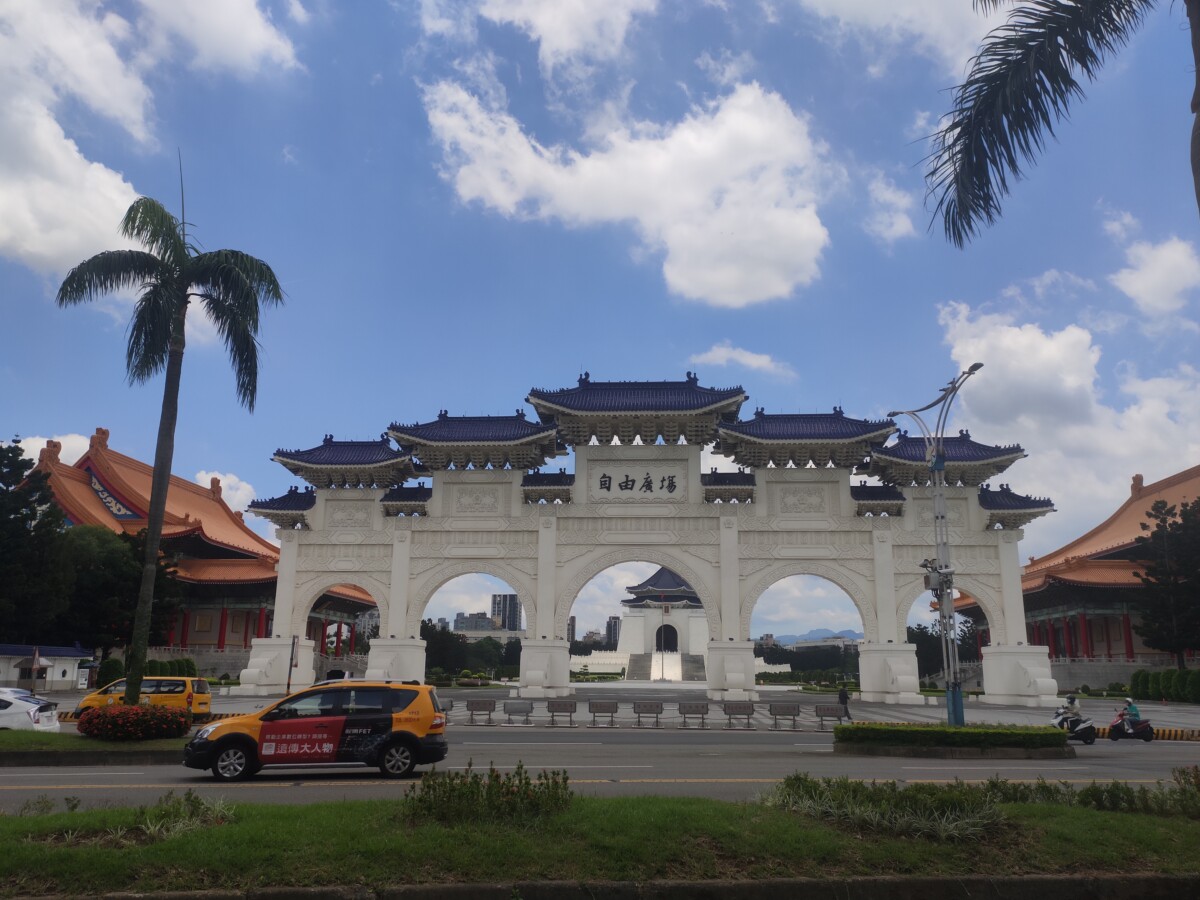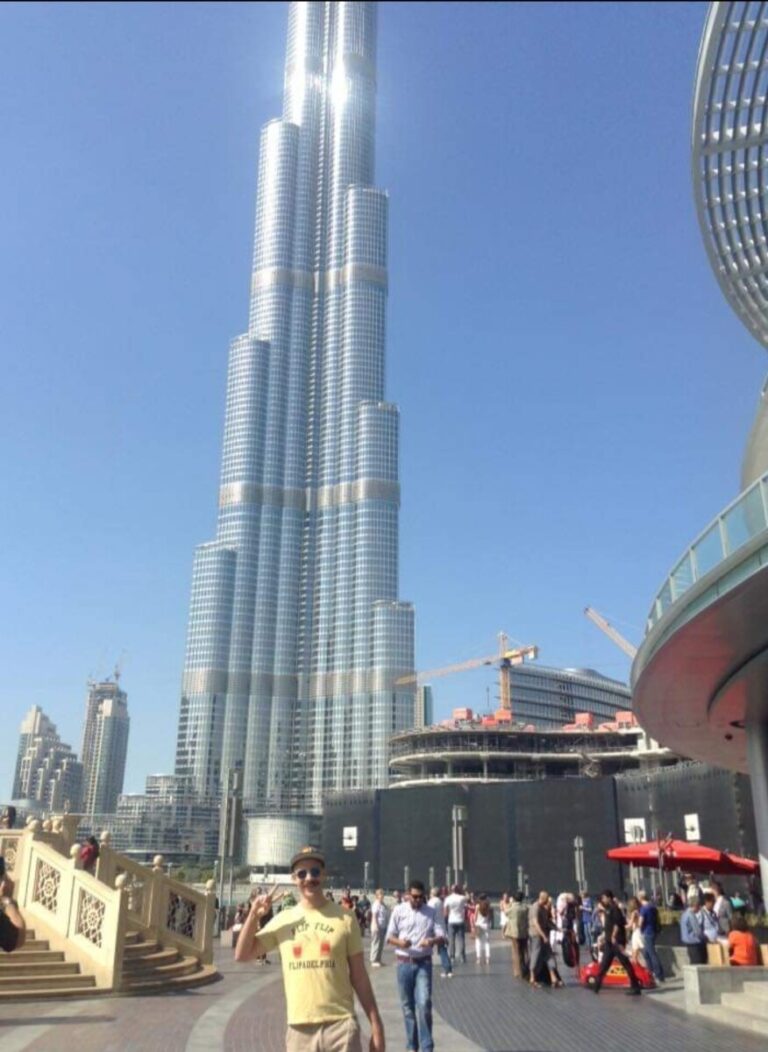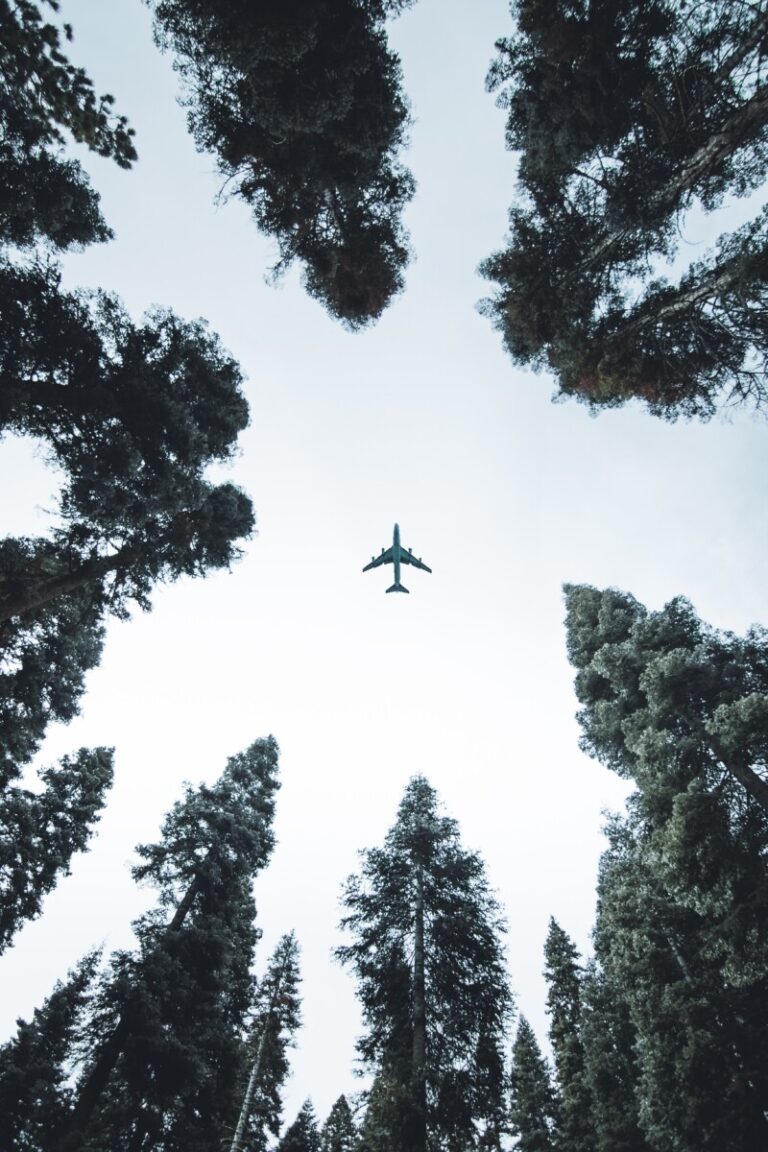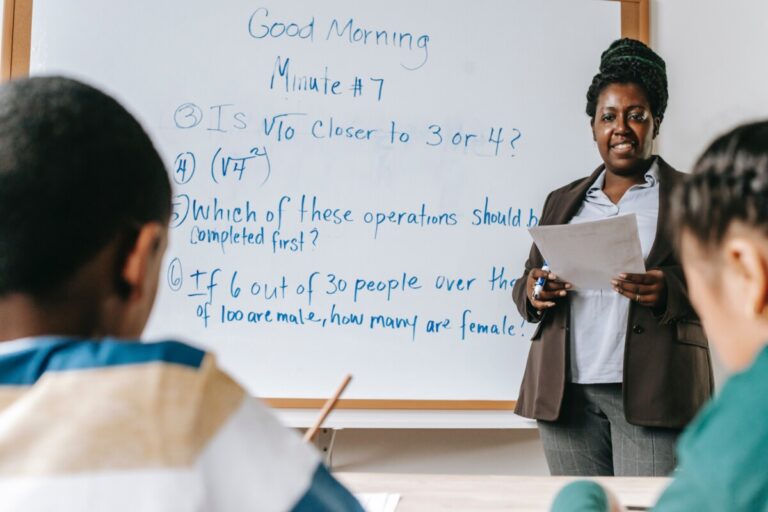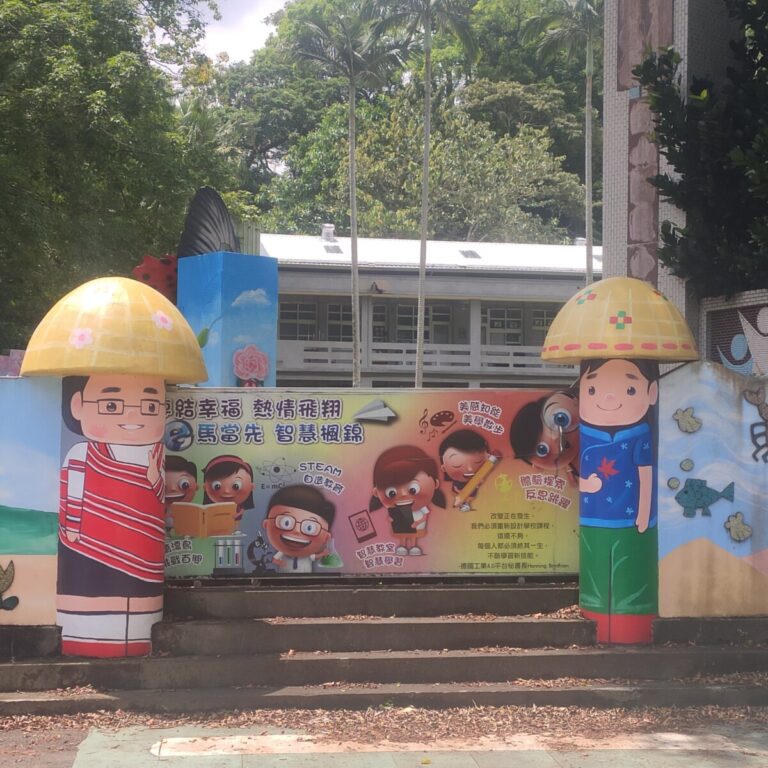The Ultimate Guide for Moving to Taiwan
So you are moving or coming to Taiwan for an extended period of time. Taiwan is a great place to move with lots of options for everyone whether you want to watch the art of climbing mountains. There are some things that could be a bit tricky if you don’t speak Chinese or have been before.
A plane ticket and visa are the first two things you need to move to Taiwan. To make it more comfortable for you, knowing about the country, its rich history, language, and how/where things are can make your stay more enjoyable. And you will get a lot more respect from your coworkers and locals.
While that will get you into Taiwan, you should really know some things about it to immerse yourself in the culture. Check out below to learn about how to get yourself set up, get around, and be more knowledgeable about the language and culture.
Brief History of Taiwan (台灣)
Although Malayo-Polynesians had inhabited Taiwan for millennia, the island’s recorded history does not begin until the Dutch arrived in 1624. They created a base in the southern city of Tainan, but their control was short-lived. When Ming loyalists fled to Taiwan to escape the Manchurian conquest of mainland China, their leader, Koxinga, became the driving force behind the Dutch defeat in 1644.
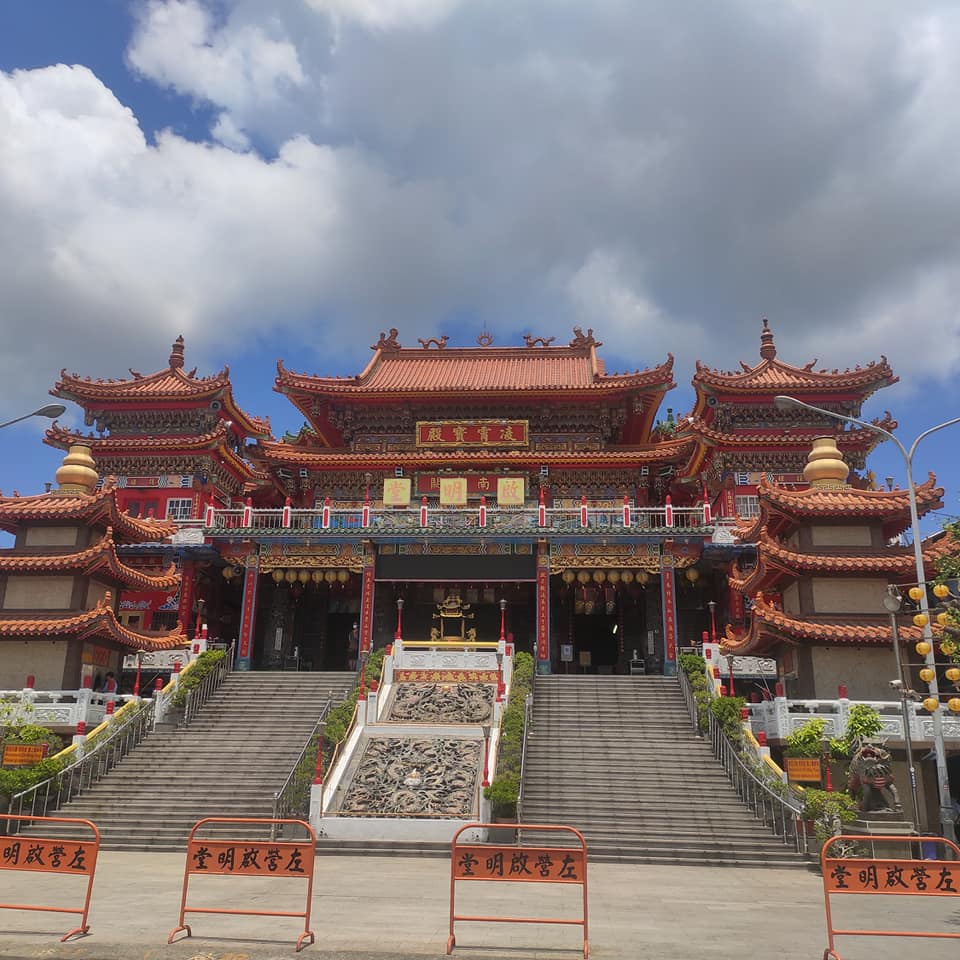
About 40 years later, the Qing dynasty took control of the island and made it an official province in 1885. Taiwan was ceded to Japan at the end of the First Sino-Japanese War that same year. While the Japanese rejoiced in their victory over China and ownership of the island they had long coveted, the Taiwanese strongly opposed the prospect of Japanese rule, and on May 23, 1895, took advantage of the absence of Japanese presence on the island and declared Taiwan an independent republic, the Republic of Formosa, complete with a national flag, currency, and government.
However, Japanese troops landed in northeast Taiwan on May 29, and after occupying Taipei, they embarked south to Tainan, then the capital of Taiwan. After entering the city in October, the Japanese remained in control of Taiwan for the next 50 years. They left a significant mark on the island by building schools, irrigation systems, and railways, in addition to logging the Alishan forest and destroying numerous Daoist temples.
At the end of World War II, Japan relinquished its colonies, including Taiwan. The Republic of China (ROC), having been established in 1911 after the fall of the Qing dynasty, gained control of the island. Soon afterward, Chiang Kai Shek’s Kuomintang (KMT) ROC troops fought against Mao’s Communist forces for control of China. When they lost in 1949, thousands of ROC officials and supporters fled across the Taiwan Strait and made Taiwan their stronghold.
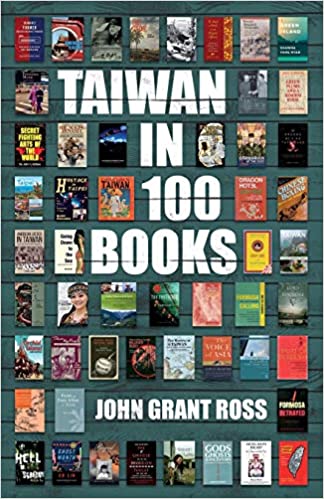
Upon their arrival, they imposed a period of martial law known as the White Terror to combat any Communist influence. During this time of oppression, the government limited freedom of the press, imprisoned perceived political opponents and forbade the use of the Taiwanese language in favor of Mandarin. In 1987, martial law was lifted, and a wave of democratic reforms swept the country. In 2019, Taiwan became the first Asian country to legalize same-sex marriage.
The international community recognized the ROC as the legitimate government of China until the 1970s when Taiwan was expelled from the United Nations in favor of the People’s Republic of China (PRC). The United States and other major powers also switched their allegiance to the PRC and cut diplomatic ties with Taiwan. Internationally, the PRC is recognized as legitimate China, while Taiwan maintains the ROC is the rightful government. Cross-strait relations remain one of the most contentious issues in international affairs.
TIP: For amazing facts and amazing pictures check out Taiwan in 100 Books here are a few more of my favorites that are really cheap and some are free for E-Readers
- Taiwan Travel Guide: Interesting Taiwan Travel Experience for Tourists: Interesting Taiwan Travel Experience for Tourists
- Taiwan Tourism: Interesting Taiwan Travel Experience: Taiwan Travel Guide
- Lonely Planet Taiwan 11 (Country Guide)
- 101 Amazing Things to Do in Taiwan: Taiwan Travel Guide (Taipei Travel Guide, Southeast Asia Travel Guide, Budget Travel Taiwan)
- Travel Taiwan_City Guides
Preparing Yourself for Taiwan
When to come to Taiwan? The big hiring period is from December to right after Chinese New Year for the upcoming year which starts in August/September. They take time to vet you and have multiple interviews and do background checks. For Buxibans The biggest hiring periods for English teaching in Taiwan are after the Lunar New year and during the summer. I wrote a full article on it here for you. Best time to Move to Taiwan.
Do You Need to Speak Chinese to Teach and Live in Taiwan? That is a very good question and something you can read about in my article. It could prove useful.
Documents to bring when coming to Taiwan: You will need original copies of the documents below if you want to study, teach and or work another job here. You may not need all of them but having them can make life easier down the road. Since not many countries have Embassies getting official documents here is hard and a lengthy process.
- Passport
- Diploma of the highest educational degree
- Teaching certificates or any other certificate you have (TESOL, TEFL, Yoga, SCUBA, etc.)
- Original Taiwan work permit that was mailed to you (will be necessary to apply for your ARC). If you do not have this I have outlined here the 9 requirements to need to get it. if you are out of the country. In the country, the process is a little different but doable with all the right documentation.
- Receipts from your residency visa application, flights taxi, etc. for reimbursement if your school or work does that. In Taiwan, they want paper copies and not a photo of the credit card receipt.
- Extra passport photos for visa and other identification six to eight should be enough, but if not they can be done them cheaply here 100 to 200NT (3 to7 USD). (If you have a digital file, you can print these yourself at photo kiosks in various convenience stores and Carrefours. Locations found here)
Items to bring when moving to Taiwan: When you arrive you may have a place to stay or not. You can get almost anything here you can from your home country but it just might be very expensive and not exactly what you are looking for. So when it doubt brings it.
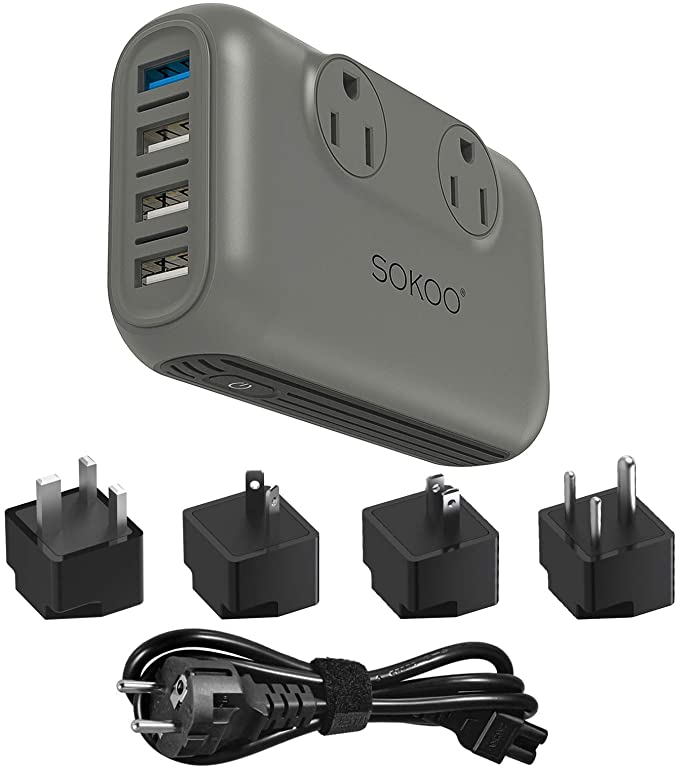
- Bedsheets if you need are particular and if not Costco and Ikea have them.
- Towels, tend to run small here. So I would bring one or two.
- For women bras, underwear, and feminine products are very different.
- Power Converters if you are in the states this one is cheap and good. FOVAL International Travel Adapter
- A few months’ supply of meds that you take and the actual scripts so you can get them refilled here.
- Cash to exchange at the airport is cheaper there than it is in the country. You can also use your ATM card, I have the online bank Fidelity and do not get charged for withdrawals overseas. If you want to just bring cash US$1,500 is recommended. Taiwan uses National Taiwan Dollars (NTD). As of August 18th 2021, 28NTD = $1.00USD
- Preferred translation app (Traditional Chinese): Google Translate, In my opinion, the best one is Pleco, as it has all types and dialects and varieties of Chinese. These other two are not bad but a bit harder. Waygo, Hanping Chinese Dictionary
- Tourist SIM card from the airport I like to get T-Star and it has the cheapest plans and great service you can get up to three months really cheap on the deals. It could take a few days for wifi to be installed in your apartment, so this will afford you a few days of online access in the meantime. You need your passport to purchase.
- International/State driver’s license. Once you have your ARC, you can legally drive a car (not a scooter) in Taiwan for a limited amount of time on your US driver’s license. Some US states have reciprocity with Taiwan, so you can easily obtain a Taiwanese license. Here you can follow to get the international driving permit good for one year. It is quick and easy to do and works all over the world.
- Can’t-live-without food, vitamins, and spices (Some spices are hard to find/quite expensive in Taiwan, and some food items aren’t available.)
- Communication App: LINE and I would have WhatsApp as well.
- Winter clothes (It does get chilly!)
Getting Settled in Taiwan
Alien Resident Card (ARC), how to Get Your ARC
Your ARC is necessary for your health insurance, driver’s license, cell phone plan, and various services. It is a valid ID for checking into hotels, buying ferry tickets, etc., and allows for easy re-entry when returning from abroad. Sign up for E-Gate at the immigration area when departing from Taiwan so you can have a speedy reentry.
Your company should help you with this if you are on a Gold Visa or a different type of visa you may have to do this on your own. It is not hard, I would take all the documents above to the main office in your city. You can read about the documents you need to bring, where to go, and who to contact here National Immigration Office

Your ARC will likely take a couple of weeks to process and arrive in your possession. While you wait for your ARC, you will be issued a document stating that you have applied for your ARC. This is important! You can use this document to purchase a cell phone plan while you wait for your ARC to arrive. You cannot, however, leave Taiwan and reenter with this document in lieu of an ARC. Wait until your ARC is in your possession to travel abroad.
Lost Wallet/ARC/ID Cards
Go to any police station and ask for their help finding it, noting the time and place of loss. Then, go to your immigration office and apply for a replacement. You will need your passport and a copy of your passport, a copy of your lost ARC, your name chop, one visa-sized (3.5 cm × 4.5 cm) photograph, and NT$500. It will take 14 days to get your new card. Plan accordingly. The staff is extremely helpful and will answer any questions you may have. It happens to us all don’t worry.
What is a name chop and do I need one?
Your personal stamp has your Chinese name on it and is used on official documents, such as your bank account and cell phone registrations. Although you will probably not use it often after you have set up all of your accounts, be sure to keep it in a safe place in case you need it! You can have copies of this made at any price for a low price.
TIP: By law, a foreigner does not need to get a Chinese name. I do not have one and will not. The reason for this is that everything that you get from the bank to the hospital is done with this stamp and they call you by your Chinese name. I have nothing wrong with people taking other names but that is not me. Your normal signature will work on these documents and a fingerprint in some cases. The process may take longer, but that is what will happen if you keep your real name.
Finances
Banking: Setting Up Your Account Your work should help you open a bank account at Chunghwa Post (Post Office) Bank is the main bank for public schools and government offices ( I have had it before the service and red tape is horrible). The setup for all of them is basically the same, you will need your ARC or proof of ARC application, passport, and name chop. The minimum initial deposit is NT$1000 cash. There is a separate application form to set up an online account.
In addition to your ATM debit card, you will also receive a passbook (ledger) that keeps a printed record of your transactions. Update your ledger at the bank or ATM. It must be up to date for your ATM card to function abroad.
TIP: I would recommend using ESun bank, it has great service, you can use the debit card as a yoyo card and the app is easy to use.
Getting Paid – Your salary will be automatically deposited into your bank the building has chosen once a month around the 5th, and you will usually your pay stubs through email or by hand at someplace.
Cash and Credit Cards– Cash tends to be used most frequently, especially at night markets, food stalls, and taxis. Bank and debit cards, credit cards, and online payments (LINE Pay, Apple Pay, etc.) can be used at larger retailers and connected to apps like Uber Eats. Credit cards that don’t have international fees are great I have Chase Sapphire.
Paying Bills and Fines
Utility Bills– You are responsible for your own water, gas, electricity, cable/internet, and cell phone bills. Taiwan Power Company has a tiered pricing system through which you pay significantly more when you cross a threshold. By running the AC during hot summer afternoons, you are more likely to have a higher electricity bill.
TIP: If your landlord says that each kW of power is 5nt, that is illegal and says you want to just pay what is on the meter. It is another way for them to make money.
Auto-debit can be arranged at the bank. Mobile carriers can also arrange auto-debit for their bills. You will need your ARC and a paid bill to set this up. There is a one-page application form at the bank for this service. Once you have your first bills, bring them to the bank to set up auto-payments or pay each bill at any convenience store. Yes, you can pay your bills at 7-11.
If you do not pay a bill on time, you must make the payment at the business or company itself.
Paid Parking Fees
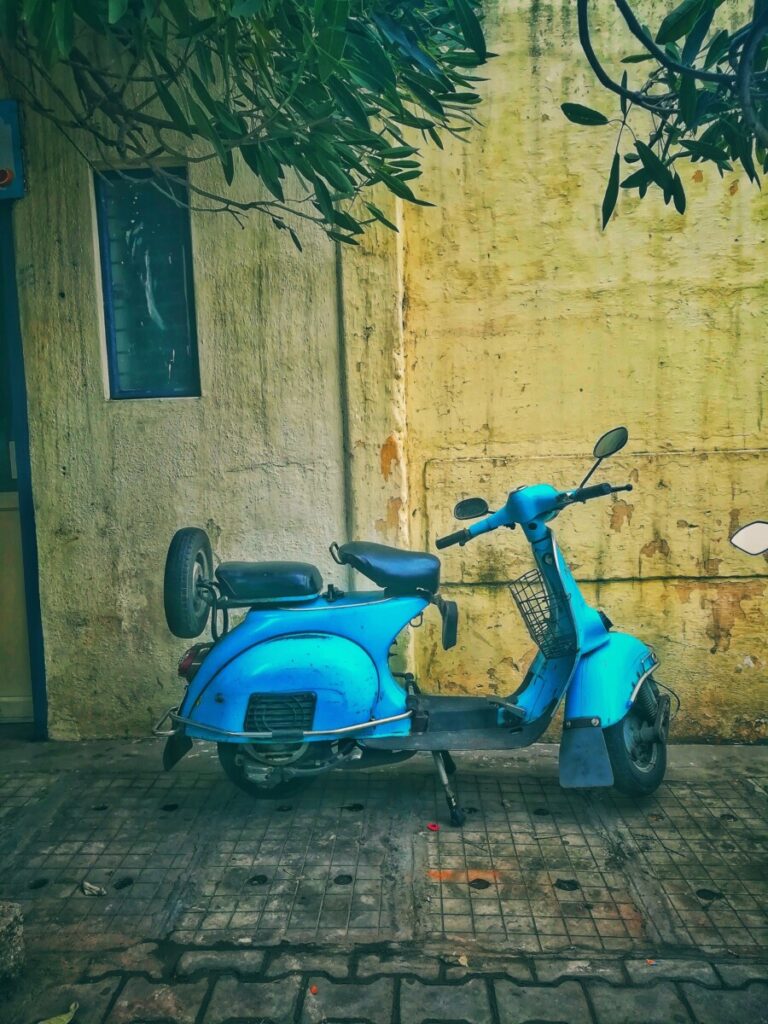
Many places in Taiwan have paid parking, either per day or per hour. Rather than pay in advance, simply park your car or scooter, and a traffic cop will come around and place a parking fee ticket on your vehicle. Pay the ticket at any convenience store.
Traffic Violation Tickets
If you happen to get caught speeding, parking illegally, or committing a moving violation, the ticket will be mailed to your address. Oftentimes, the ticket includes a photo of the violation, either taken by cameras on the road or by another driver. Pay the fine at the ATM or 7-11. Be wary I never have gotten a ticket from a traffic camera but in Taiwan people will take photos of you breaking traffic laws and send them in. They get a commission by ratting you out.
Transferring Money
International- Money can be wired internationally at the bank for a fee. This process can take half an hour or more so be prepared time-wise. Check with the receiving bank for their routing number, address, swift code, etc. so you can provide it on the transfer forms here in Taiwan. I again use E-sun and keep that document try to do it the first time each time I come in I just hand them that and tell them the amount. What you need to transfer money internationally are
- Bank Card
- Passport
- ARC
- Bank Routing and Account Number of the foreign bank
- Address and phone number of the foreign bank
- A residential address in the country you are sending money to
- A chop if you have one
- A lot of patience and something else to do the first time.
Local- Each bank has a specific code that is needed when transferring money within Taiwan. Post Office Bank Code: 700. You can easily transfer money to other Taiwanese bank accounts through the ATM to reimburse a friend or pay registration fees for various events in Taiwan. Have the recipient’s bank code and account number on hand. When you register online for events, tickets, etc., and choose to pay through bank transfer, be sure to have your bank code and the last five digits of your account number accessible. It costs 15nt for a different bank and is free if it is going to the same bank.
Tax Information
If you are in Taiwan fewer than 183 days of a calendar year, you are considered a nonresident and subject to a flat 18% tax rate. For more information about taxes in Taiwan, see this explanation of Taiwan taxes and the filing process or this blog post on filing taxes for foreigners (as of May 2021). When you file, you will be provided with your salary and Taiwan tax information in case you need it for taxes in your home country.
Mail & Package Delivery
Some apartment mailboxes are broken and cannot be locked. Taiwan is a safe place, however, and mail theft is incredibly rare. You can also ship packages to your closest convenience store (Family Mart or 7-11) for easy pick-up at any time of day. I always get it sent to the OK mart it is cheaper to ship. Before international packages can clear customs into Taiwan, you need to fill out customs information on the EZ Way app or make sure the customs form was completed by the sender at the sending post office.
Domestic Shipping- You can ship packages at convenience stores. Go to the ibon at 7-11 or FamiPort at Family Mart.
International Shipping- You can find Fed-Ex, DHL which is expensive, or go to the regular post office it takes time and is a bit annoying but just make sure you have all the information about the country and address ready. Someone there should speak a bit of English.
The Post Office can ship internationally for relatively reasonable prices; however, it does not ship through USPS. If you are shipping to the United States, FedEx and UPS are available, and DHL is available for other countries.
Cell Phone/Wifi/Cable
These plans can be purchased as a bundle or separately at Chunghwa Telecom, and your bills can either be mailed to you, on the app or sent through email.
Cell Phone Plans: Several excellent unlimited plans are available for data, text, phone, or a combination of those. I use T-Star and it is 400nt a month for unlimited everything. It is a 2-year contract. You can get shorter ones. Most come with a contract that you will have to pay out if you break, so check the fee when you purchase your plan. Bring your ARC/proof of ARC application, housing address, and passport when purchasing a plan.
If you have an unlimited data plan, you can use your phone as a hotspot for other devices in your apartment. This worked very well for me when I need to save some money before.
**COVID / Quarantine Edition: Depending on the current COVID and quarantine requirements, this may change. As of June 2021, all arrivals to Taiwan must quarantine at a quarantined hotel for 14 days. You will be required to share your phone location with the CDC and do daily check-ins to report your health status. You will be able to purchase a SIM card at the airport for this. Make sure your cell phone is unlocked (ie: you fully own it before arriving in Taiwan and international settings are enabled). Please adhere to the most recent communication from him as to the best procedure for this. If your SIM card is purchased for you, you will be able to add more data to the plan if needed before you have your ARC to be able to purchase a full plan. This is done by visiting the telecom store. Upon receiving your ARC, you can purchase a new SIM card with a full cell phone plan OR you can switch the card into your name with the original purchaser going with you to release the number to you. For full details read my article here about how I got in. How to get a Teaching Visa to Enter Taiwan During Covid
Wifi: You can purchase a wifi plan when you set up your cell phone plan. Initial contracts are two years long, with annually renewable contracts available thereafter. Some teachers choose to hotspot their data plan at home instead of purchasing wifi.
Cable TV: Several cable packages are available, each with different stations, including several English-language channels. Explore your options here. Each package is color-coded for your convenience. The upcoming tv schedule can be found here. I don’t have a TV the internet here is so fast you can stream everything easily
Health Care
Health Insurance- Taiwan’s National Health Insurance (NIH) is fantastic, and most necessary procedures are inexpensive. When you receive your ARC, you will also receive your NIH health card with your Chinese name, photo, and birthdate on it. The year of your birth follows the Taiwanese calendar, which measures the year from the Republic of China’s foundation (1911). So if you were born on October 20, 1980, your health card would read 69/10/20. Your NIH card can also be used as a photo ID.
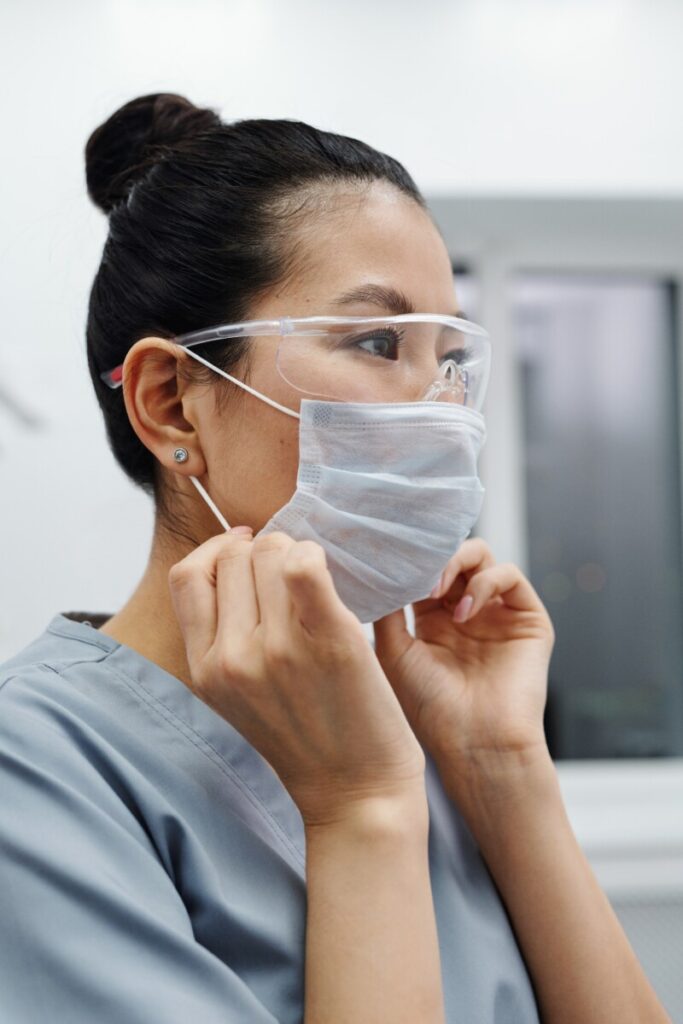
On your first visit, you will fill out a form to be put into the hospital system. You can book subsequent visits you can call, using line or the website, each hospital is different. The times you can choose are not set and you get a number for the morning (9:00–12:00), afternoon (14:00–17:00), or evening (17:30–20:30) by clicking on the relevant department. Choose the doctor you wish to visit and the date on which they are available. Enter your ARC number, and birthday in Taiwanese format (make sure the year you provide is the Taiwanese year). A network password is not required.
After you book, you will receive a number that serves as your place in line for the timeframe of your appointment. On the day of your appointment. If you miss your number, you will be placed at the back of the line.
Prescriptions– If you have your scripts from your home country you will need to make an appointment and go from there. They will give you a new script.
Fill prescriptions: The hospital can fill them at their own pharmacy or any local pharmacy some doctor’s offices and
Housing
Your Responsibilities– Utility costs and basic upkeep of your apartment, including aesthetic changes, changing light bulbs, etc, are your responsibility. In most buildings, units contribute to a cleaning fee for regular upkeep of the entrance, lobby, and stairwells. Your building may already have this arrangement, or you may need to ask about it.
Water-Tap water is clean but the pipes may be old and that is why no one drinks it, the pipes have heavy metals. I and most people have no problem using it for brushing their teeth and doing dishes. Installing a filter for potable water if your apartment doesn’t have one. You will be responsible for the cost of installation (~NT$12,000) and filter changes every year (~NT$1,000). Some teachers use Brita filters or buy bottled water.
Garbage and Recycling Pick-Up– If your apartment doesn’t have a central garbage spot listen for what sounds like the ice cream man, an amplified jingle announces the garbage and recycling trucks’ arrival each morning and evening (except Sunday). Most trucks stay for 5–10 minutes, usually between 7:00–10:00 and 17:00–21:00. Specific collection times vary, depending on the location of your apartment. They are consistent, however, and you will learn them quickly. At the respective time (better to head down a couple of minutes early), take your trash and recyclables to the street in front of your building and toss them into the trucks. It is annoying, but hey.
Put food scraps (meant for feeding pigs) on the back of the trash truck in either the blue bin or the orange can. NO eggshells, banana skins, or bones.
Recyclables go in the blue pick-up truck that follows the trash truck. Separate your recyclables and place the paper in the part of the truck bed closest to the driver, glass in the plastic bin at the edge, and plastics in the rest of the space.
TIP: Dehumidifiers are a necessity in this climate, and you can purchase them at Costco and RT-Mart. Ceiling and stand-up fans also mitigate the humidity. Turn on the fan after showering to dry out the bathroom to help prevent mold. This happens more in the south so be wary and if you see black spots growing call your landlord asap. I just got mine fixed with some special paint. I got the one below on sale, Amazon does deliver here, and is often cheaper.
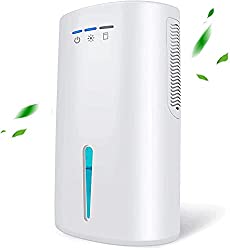
Winter: December–February is COLD (for Taiwan) winter months. Most schools and apartments don’t have built-in heating systems, and you may have to purchase a portable one for your apartment. Many people buy one heater and move it to whichever room they are using. Students and teachers will likely wear coats at school during these months.
Cooking Range: It may take at least 10 seconds after turning on the gas for it to reach the burner, and then it may take a few flicks of the wrist to ignite it. If you turn the flame down to the lowest level, it may go out but the gas will still be on. Pay attention so the gas doesn’t build up and cause an explosion.
Ovens: Unlike those in most western countries, Taiwanese kitchens do not come equipped with built-in ovens. Countertop toaster ovens can be purchased from Costco for approximately NT$3,000.
Clothes Dryer– Clothes dryers are really not a thing here. Generally, it is not worth the trouble and electricity, so most people hang up their wet clothes instead. They dry fairly quickly outside or on a drying rack inside with the dehumidifier running.
Pests: Ants, mosquitoes, and other pests usually enter through cracks under the door and baseboards and through poorly screened windows. Roach hotels work well, but they also kill the geckos that eat ants and other pests. Pesticide spray works for many pests and roaches, but it is highly toxic. The best preventative is keeping floors and other surfaces clean and swept. Putting tape over drains in the floors; storing food waste in the freezer/refrigerator; and using mosquito nets, plug-in repellents, and electric swatters that look like tennis rackets are also helpful. Large, frightening-looking Huntsman spiders are common, but not poisonous, and eat mosquitoes and roaches.
House Help Cleaning Services– You can employ a house cleaner once a week or once a month. Ask around for recommendations, they are not expensive, around 400nt for a full cleaning.
Transportation
EasyCard/Yoyo Card– Prior to taking public transportation, including YouBike, purchase an EasyCard, also called a Yoyo Card (Most Taiwanese say ‘Yoyo Card’), at any convenience store. The refillable card costs NT$100 on top of whatever amount you choose to put on it. In addition to transportation, EasyCard also serves as a payment option in many stores. Go to any convenience store or MRT (metro) station to top up your card.
Tap your EasyCard upon both entering and exiting the bus, MRT, or train station. If you forget to tap out, your card will be locked, and you will be unable to use it. If this happens, go to the train/MRT station where your card was locked (or the main bus station), and the staff will unlock it for you. If your card was locked in a different city (ie: if you forgot to tap out of a Taipei city bus), you need to return to that city to unlock it, so be careful! There may also be a fee deducted from your card amount.
Taiwan Transportation Apps
TaiwanBus is a must-have for public transportation in Taiwan, providing comprehensive information on intra- and intercity buses, YouBikes, HSR, TRA, and MRT. Find timetables, real-time bus locations and departures, YouBike availability at each station, MRT maps and station amenities, and upcoming TRA trains from your nearest station.
Bus+ also provides real-time bus and YouBike information and a TRA journey planner.
Getting Around by Youbike
This is my jam and thinks everyone should do this, it is really cheap and easy.
Apps: Youbike 1.0 and 2.0 you can even use your credit card to use it if you don’t have a yoyocard. , Google Maps (bicycle option will often give you the route from the nearest YouBike station with information about the number of bikes available)
YouBike stations are found throughout most major cities in Taiwan. You need to set up an account prior to your first use at any YouBike station kiosk. You can do this in English, and make sure you have your phone number, phone (for a confirmation text), and EasyCard on hand. Once you have your account set up and are ready to ride. Tap your EasyCard on the bike stand to release the bike, and remember to retap once you have returned it to the destination station.
Hsinchu: Has 2.0 but none in Zhubei so don’t drive them to the HSR.
Taipei: There are two different types of YouBike in Taipei: YouBike and YouBike 2.0. These are not interchangeable! Although you can use your YouBike account for both, you can only return YouBike 2.0s to YouBike 2.0 stations and vice versa.
Kaohsiung: Youbike 2.0
Tainan: A similar system, called T-Bike, is set up in Tainan. Operating exactly like YouBike, it is owned by a different company, so you need to create a separate T-Bike account before riding.
Kinmen: A similar system, called K-Bike, is set up in Kinmen. Operating exactly like YouBike, it is owned by a different company, so you need to create a separate K-Bike account before riding.
Taxi Apps: Find Taxi, Uber, Line Taxi
Order taxis at convenience store kiosks or ask the clerk to call one for you. Very few taxi drivers speak English, and many will still be confused if you show them Google Maps. Therefore, learn your Chinese directions since Google Translate is minimally helpful. Having your destination’s address in Chinese is most efficient. I use Uber most of the time,
Scooter: Scooters are one of the most popular vehicles in Taiwan. While many foreigners drive without a license, you are strongly encouraged to become a legal driver. Some cities issue fees and greater punishments for unlicensed drivers (ie: impounding the scooter after one or two tickets for driving without a license). Additionally, unlicensed drivers may bear the sole responsibility for an accident, even if the other driver is at fault. Here is information on obtaining a license, along with resources to help you practice for the written exam. Visit the procedures document for links to the mock exam for both car and scooter tests.
All drivers are required to have insurance. The government sets the cost of the compulsory insurance plan, but you can also purchase additional coverage. The annual renewal bill will come through the mail and can be paid at any convenience store.
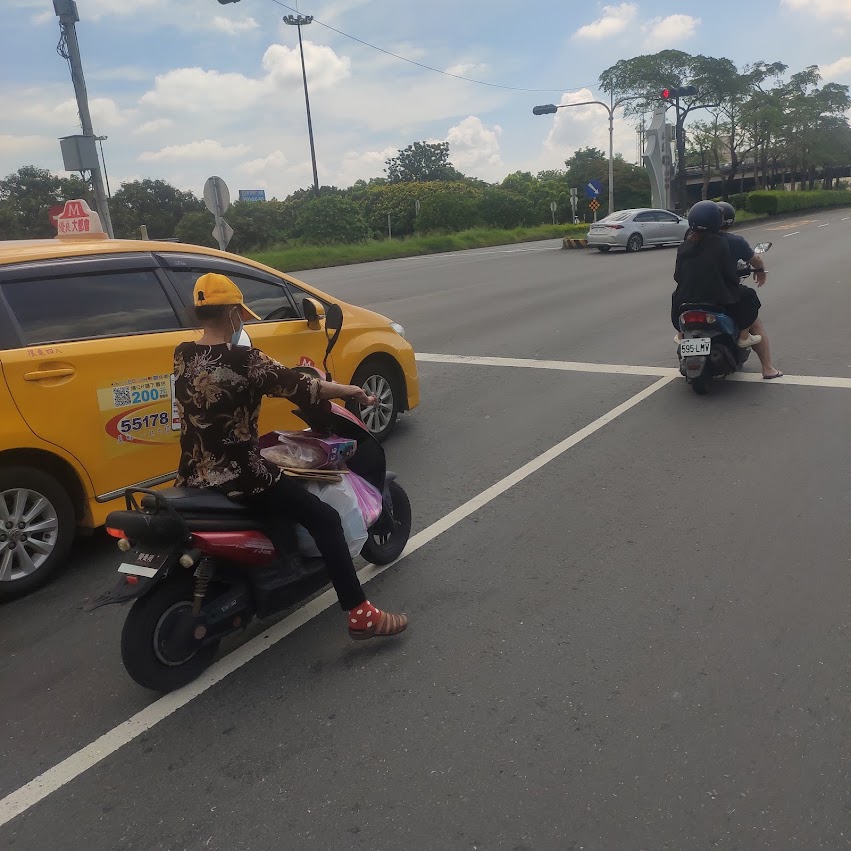
You can purchase used and new scooters from scooter shops or people in the area who are selling their scooters. You will need to register the scooter under your name at the DMV and have it undergo inspection. Bring money, your ARC, and your name chop. You do not need a license to purchase a scooter, buy insurance, or register a scooter in your name.
Car: You may be able to exchange your current driver’s license for a local license (for operating cars only, not scooters), depending on your state’s or province’s reciprocity agreement with Taiwan. You can use your overseas driver’s license or International Driving Permit to drive a car for up to 30 days in Taiwan. Note that parking a car in Hsinchu can be difficult.
Intercity Transportation
High-Speed Rail (HSR): The HSR operates along the west coast from Nangang in the north to Kaohsiung in the south. Stations are not always convenient to the city center, so plan accordingly. Choose from a business class, reserved, and non-reserved seating classes. Seats in non-reserved cars are first-come, first served, so on busy weekends and holidays, prepare to stand for the duration of your journey. It is recommended for travelers during busy times to purchase tickets in advance to avoid them selling out. **COVID Edition: during holidays, weekends, or other prevention-related times, you may find that non-reserved seating is not an option. Therefore, you will need to purchase a reserved ticket for a specific departure time. Advanced purchase is encouraged because there may be a limited number of tickets to prevent crowding.
Not all HSR trains stop in Hsinchu (or at all stations)! Make sure you board a return train that stops in where you are going, or you’ll be backtracking from Taipei or Taichung. If you miss your train or need to change your ticket time, you can do so for free at the customer service desks at the stations.
You can use klook to book THSR tickets and get a big discount usually around 25%. If you use this link you will get another 100nt off as well.
Taiwan Railways Administration (TRA)
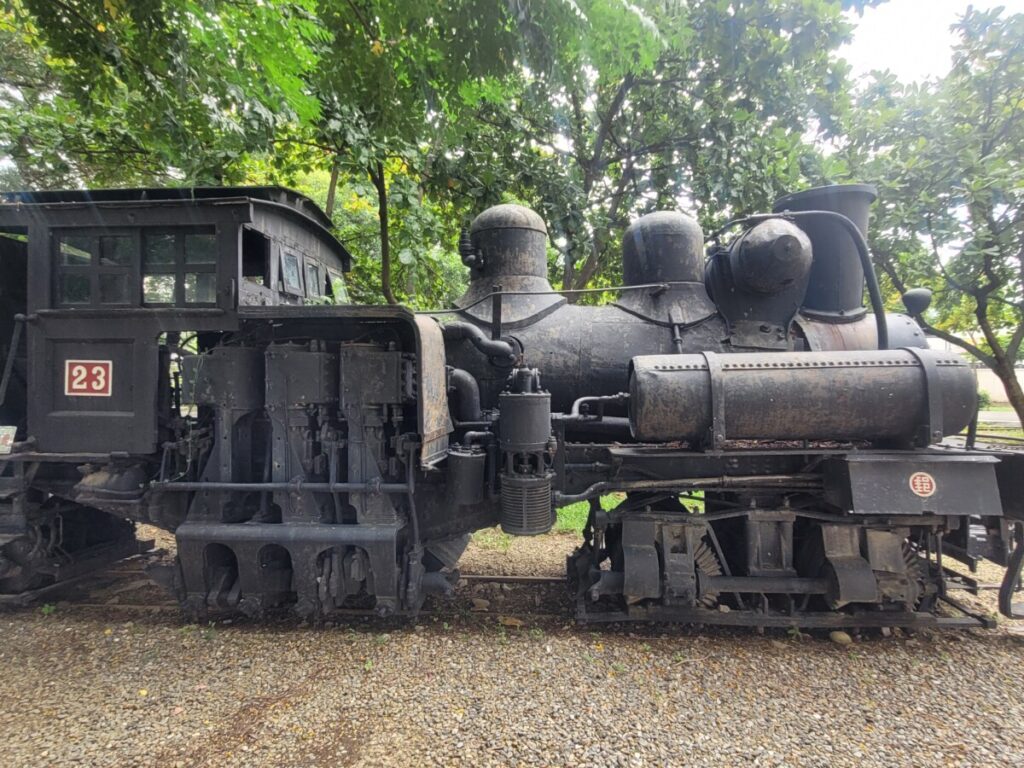
The TRA is slower, more affordable, and can be more convenient than the HSR, depending on your destination. Purchase tickets at any convenience store, train station, online, or through the TRA app. The TRA does not have reserved/non-reserved cars. Seats are not guaranteed, so the best way to obtain a seat is by purchasing tickets in advance. EasyCard can be used on the local trains and Tze-Chiang Limited Express (NOT Puyuma Express or Taroko Express (part of the Tze-Chiang Limited Express on the east coast). If you pay with EasyCard for journeys shorter than 70km, a 10% discount will be applied.
App: 台鐵e訂通 . Search TRA App in the App Store. Although it has a Chinese name, the app is in English. Purchase tickets for pickup or receive mobile tickets.
The Main Lines are, Local Trains (Stops at all stations on the line. Quite slow.), Tze-Chiang Limited Express, and Puyuma Express
Bus: Intercity buses offer wifi, USB charging stations, and comfortable seats. Several bus companies operate throughout the island on specific routes. The only routes that serve Hsinchu, however, are to Taipei and Taoyuan. See details below. Apps: TaiwanBus , Bus+
General Business Hours for most places.
Grocery stores: open from 9 until around 11 PM
Convenience stores: varies; some are open 24 hours
Post office: varies – check your local branch
Banks: varies – check your local branch
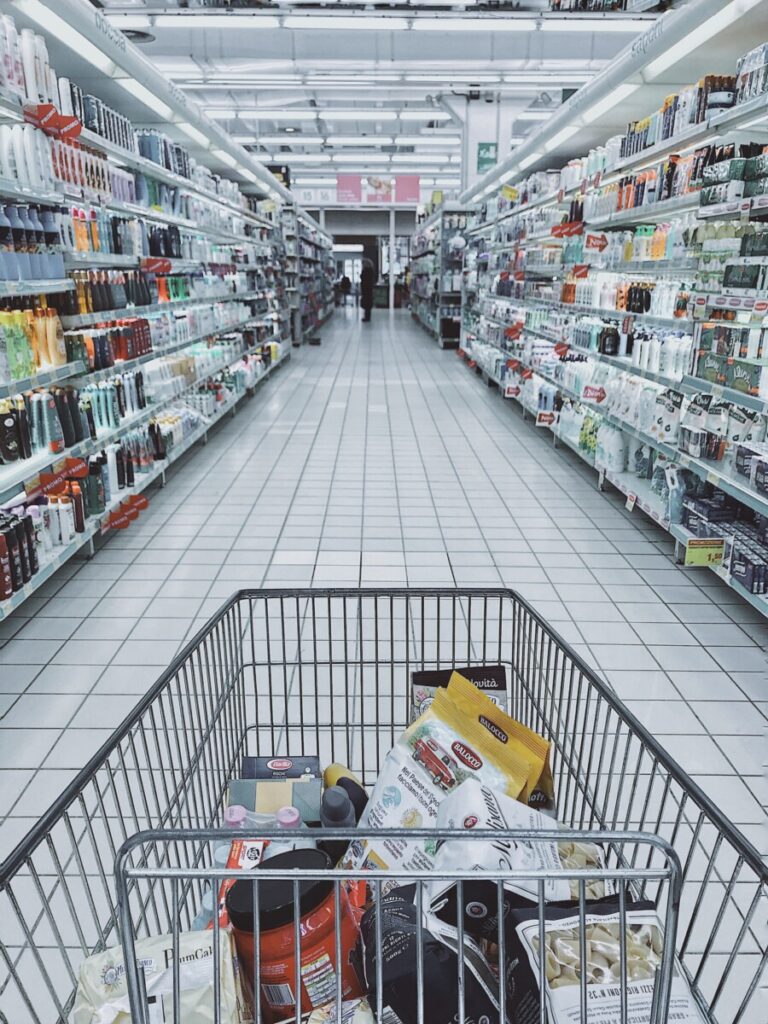
Restaurants and shops: While most close around 21:30, some stay open late, and others close as early as 20:00. Many restaurants stop service at least 30 minutes before closing, and many close after lunch at 14:00 and reopen for dinner at 17:00.
Shopping
Groceries: Everyday, PX MART, RX MART, Wellcome, Carrefour Market
More Upscale (hard-to-find items, but more expensive)
Jason’s Market, City Super
Traditional Markets (usually only open at special times of the day). I just buy all my stuff from these, they are cheap and fresh.
Cosmetic Stores: Watsons, Cosmed
Comprehensive Shopping (Groceries and Other Items)
Costco: membership required (you can use your US membership card); does not take credit cards
Carrefour: affordable prices, wide selection, good for household items and international food
RT-Mart. Clothes, electronics, Taiwanese and international food, and cosmetics. Inexpensive.
A.mart. Similar to RT-Mart. Located in a building with other retailers for shopping.
Poya. Cosmetics, household goods, office supplies, snacks, and drinks.
Specialty Stores
Baking Goods: Again each city will have a few specialty stores that will have all your needs
Sporting Goods: Decathlon is a common one for every city, but I prefer to shop at the local shops.
Dollar store: Called 小北 Xiǎo běi they are all over the place and you will see the as big gaudy colors and open 24hrs.
Online Shopping
Ruten and Shopee. Order almost anything you can think of. Competitive prices. Packages arrive within 1–2 days.
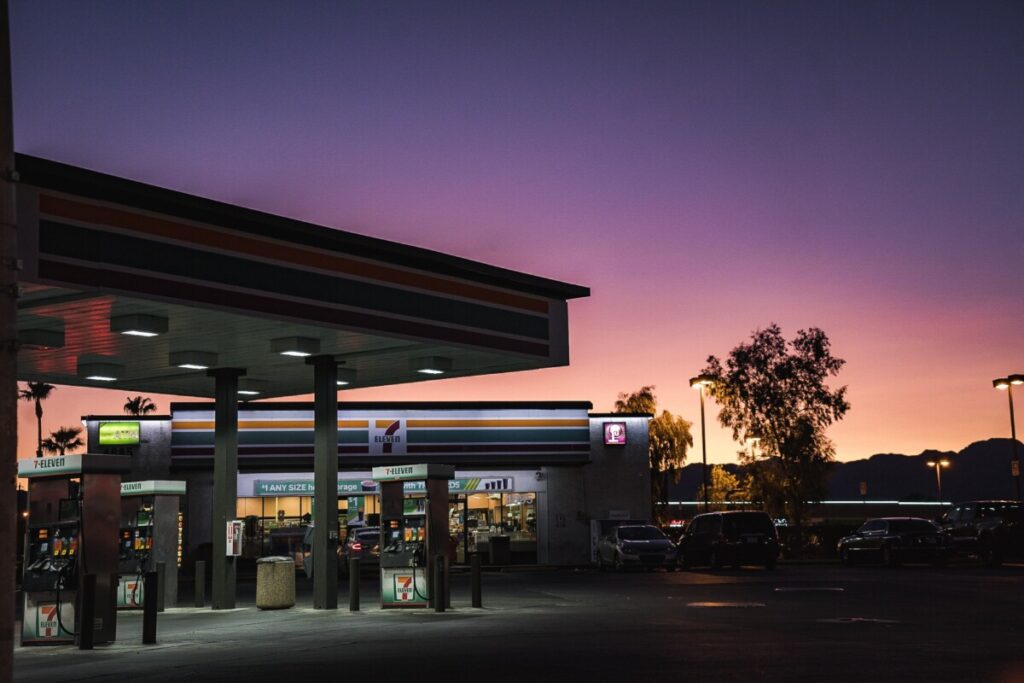
BookDepository: Wide selection of affordable books in various languages, including English. Free delivery.
Amazon: free delivery to Taiwan on qualifying orders over US$60
Convenience Stores
The epitome of convenience, 7-11, FamilyMart, HiLife, and OK Mart offer a wide variety of goods and services. Every store has an ATM, snacks, prepared food, coffee, and alcohol selections. You can pick up packages, pay bills, and purchase EasyCards. Many stores have toilets and an eat-in area, and some have outdoor seating, as well. Each store has a kiosk (ibon at 7-11, FamiPort at FamilyMart) through which you can take care of several everyday tasks, including purchasing prepaid phone credit, picking up TRA tickets, ordering taxis, and printing photos or documents. Pay with EasyCard or cash.
Eating Out: You will find numerous restaurants on nearby Jinshan Street. Instead of maintaining an official website, restaurants generally rely on Facebook for announcements and specials. Note that many restaurants are closed on Mondays, sometimes Mondays and Tuesdays.
Ordering: When ordering food at many restaurants, you will receive a paper menu sheet on which you write your table number (桌號) and denote dine-in (内用) or take-out (外帶) in the respective boxes, usually at the top of the menu. Write the number of each dish you wish to order in the box next to each dish. Rather than using Arabic numerals or Chinese characters for numbers, use the tally marks shown at the right. When ordering noodles, you often have the opportunity to choose your preferred noodle width: fine (細 麵), medium (拉 麵), or wide (寬 麵).
Restaurants
Although many restaurants offer vegetarian options, vegan options are a bit more difficult to find. Hot pot and Indian restaurants tend to be the most vegan-friendly. you can bring your own to-go container to cut down on waste.
Entertainment and Recreation
Pets: Most apartments are pet-friendly, and the Parks have ample parks and sidewalks for walking and playing with your pet. Remember to clean up after your pet and dispose of waste either in park garbage cans or in a bin on your balcony. Stray dogs are common, so take care of unvaccinated puppies. Most dogs are gentle. Dog and cat heartworm is endemic to Taiwan, so give your pets regular heartworm prophylaxis. If you are interested in adopting a pet, local animal shelters have animals available to adopt.
Pet Stores Are a place where animals should not be bought, most of them are from kennel mills. They also do dog grooming. Check your local dog shelter. https://animal.rescueme.org/tw The largest one in the country can help you get a pet here.
Veterinary Clinics: A Google Maps search will reveal many animal hospitals and clinics near you, you may want to ask around as they all are not created equal. Also, look for one that is 24 hours in case you have an accident during a holiday or the night.
Pet DayCare/Boarding– Ask around with other locals as all are not equal and make sure to look around first.
Exploring Taiwan
Taiwan’s size makes weekend trips quite feasible. Visit the cities and get out to experience the natural beauty throughout Taiwan. Check out the official tourism website for ideas or head to the places below. This makes Taiwan a special place where you should bring kids and you can read here the benefits they get from travel.
Taipei 台北
The largest city in Taiwan, Taipei is the place to go for museums, social events, and nightlife. Check out Taipei foreigners for a comprehensive guide to the capital city.
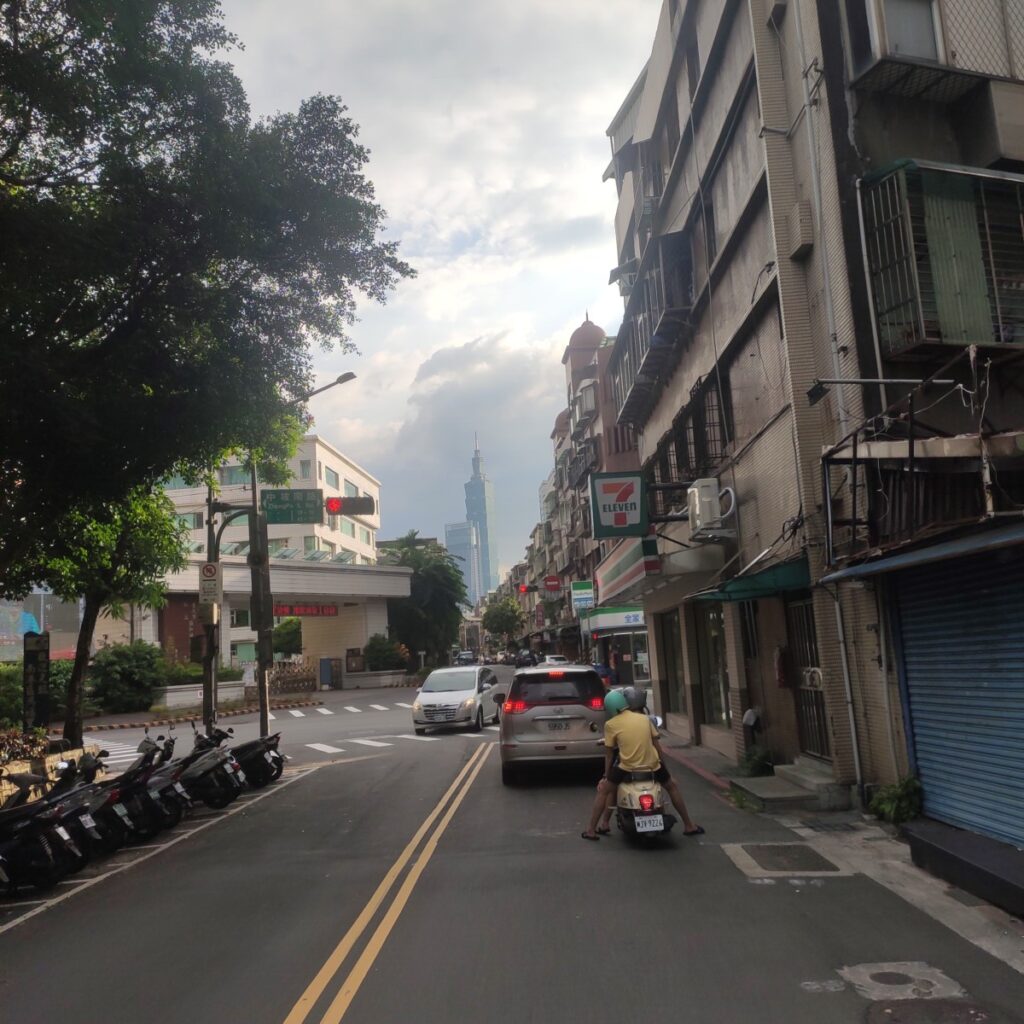
Social Groups
InterNations: This international organization for foreigners and locals offers a wide variety of activities, including foodies groups, hiking, and cultural outings.
MOWES. Non-profit women’s wellness group.
Hsinchu City
17km Scenic Coastline. This path hugs the west coast from Nanliao to the southern end of Hsinchu City and is perfect for a bike ride, run, or leisurely walk. It winds past Shuiziyuan Park and Xiangshan Wetlands and offers a beautiful view of the coastline.
18 Peaks Mountain (Shibajianshan) 十八尖山. Located between the Science Park and downtown Hsinchu, these paved mountain trails offer a respite from the city noise and traffic (but not the crowds).
Baoshan Reservoir. The nearby Baoshan Reservoirs are aptly named Baoshan I and Baoshan II. Baoshan I has short, family-friendly trails that cross the reservoir over suspension bridges. Baoshan II lacks walking trails but has a ring road with various parking lots and rest areas with views of the reservoir.
Yilan 宜蘭
Wai’ao Beach 外澳: The most popular beach in northern Taiwan, Wai’ao has a long stretch of black sand, perfect for lounging, swimming, and surfing. Accessible mountain hiking trails offer fantastic views of the beach and surrounding area. Before hopping back on the train, grab a bite to eat at Drifter’s Pizza, next to the Wai’ao train station. To get there, hop on the train from Taipei or catch Bus #1877 to Wushi Harbor from either Yuanshan or Nangang Bus Stations in Taipei.
Jiaoxi 礁溪:Popular for its hot springs during winter, Jiaoxi also has numerous trails that lead to waterfalls and amazing mountain views. Check out the Marian Hiking Trail for a view spanning the entire Yilan valley. To get to Jiaoxi, take the train from Taipei or hop on bus #1881 from Yuanshan Train Station or bus #1915B from Taipei Main Station.
Luodong 羅東:This small town is a perfect getaway to explore the exhibits at the Cultural Museum, relax on Neipu Beach, and try the stinky tofu fries at the underrated Night Market. To get there, take the train, bus #1879 from Yuanshan Train Station, or bus #1917B from Taipei Main Station.
Hualien 花蓮
Taroko Gorge National Park: Arguably the most beautiful place in Taiwan, this national park is just north of Hualien. The park is best seen by scooters, but there is also a public bus that goes through the park. Many of the trails are accessible without a permit but apply for a hiking permit to see the best trails. To get there, take the train from Taipei. Note that EasyCard is not accepted on this train!
Dongdamen Night Market: One of Taiwan’s largest night markets, this is an excellent place right in Hualien City for a stroll, food, and entertainment after a long day of hiking!
Taichung 台中
National Museum of Natural Science: One of Taiwan’s largest and most enjoyable science museums, it has multiple seasonal science exhibitions. Although exhibits are mostly in Chinese, some do have English text. Make sure to visit the mechatronic T-Rex in the dinosaur section. Overall, it’s a great place for families and aspiring scientists.
Sun Moon Lake: An easy two-hour bus ride from Taichung, Sun Moon Lake is a popular vacation spot nestled in the Central Mountain Range. Cycling around the lake, take the gondola to the Formosan Aboriginal Culture Park to learn about the aboriginal tribes and enjoy the amusement park rides and take the ferry across the villages across the lake. No swimming or boating is allowed in the lake.
Tainan 太難
Chimei Museum 奇美博物館– Located a quick train or Uber ride south of Tainan’s city center, the Chimei Museum is a beautiful building resembling the US Capitol. With permanent exhibitions featuring western art, natural history, weapons, and musical instruments, and outstanding various temporary exhibits, this museum is a must-see for art enthusiasts. The grounds are the perfect place for a picnic or post-museum stroll.
Anping: The oldest section of Tainan was built by the Dutch in the 17th century. Take a guided tour of Fort Zeelandia and visit the night market on Anping Old Street. The white sand beach is a popular spot to catch the sunset.
Kaohsiung 高雄
Fo Guang Shan Buddhist Temple and Monastery.: Fo Guang Shan’s main shrine has an area of 3,570 square meters, is 30 meters in height, and can house up to 1,000 people. There are three statues of Buddhas, each 7.8 meters high. The Great Buddha is located on the eastern side of Fo Guang Shan next to the Great Wisdom Shrine. At 36 meters tall, the Great Buddha is the highest-standing Buddha in Southeast Asia.
Cijin Island 旗津島: Located on an island a quick 5-minute ferry ride from Kaohsiung, Cijin has a beautiful white sand beach that is popular with Taiwanese and foreigners alike. Wander around the market and food stalls on your way from the ferry port to the beach, and stop by Sunset Bar for a drink during sunset. Walk up to the old fort for the view, and rent bicycles to explore the island. To get there, hop on one of the frequent ferries from Gushan Ferry Pier Station 鼓山輪渡站 and pay the NT$25 fare with either cash or EasyCard.
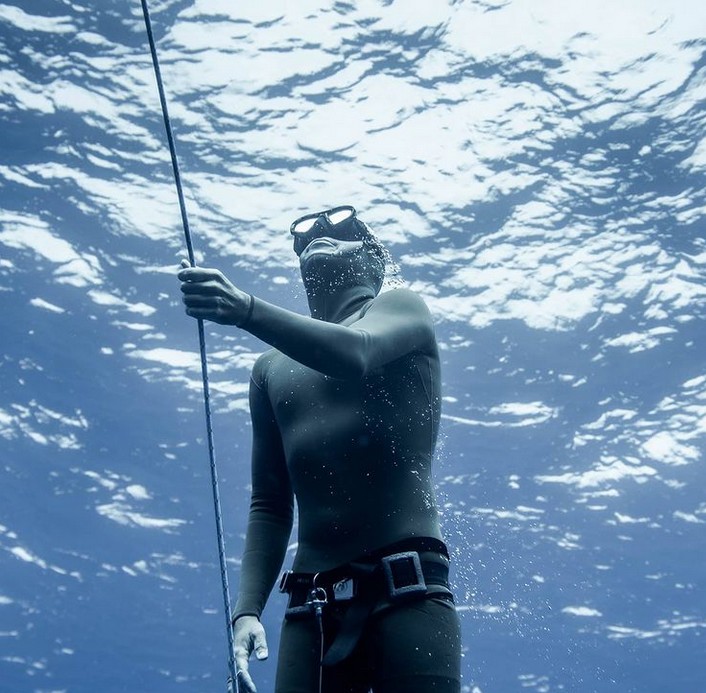
Xiao Liu Qiu Island near Kaohsiung 小琉球: Is a great little island south of Kaohsiung. A real southern gem on this island. Xiao Liu Qiu is a lovely island that is easy to reach from Kaohsiung. The water is warm and crystal clear all year round and perfect for swimming, SCUBA, and freediving. Once you reach the island you need to rent a bike to go around the island. I would recommend a yoga course with my friend Donny, he is a professional Yoga and Freediving instructor with years of experience. You can check out his site here. https://freedivetaiwan.com/
Kenting 墾丁: Taiwan’s southern beaches are the best places on the island for year-round swimming, surfing, and getting away from the bustle of city life. With several beaches on the peninsula, some more laid-back, others more attractive to party-goers, there is something here for everyone. The national park has several hiking trails, and scuba diving is a popular day activity. Play a game of beach volleyball and grab a drink at one of the beach bars in Nanwan, then stroll through the night market in adjacent Kenting. Rent a scooter and take a picture at the southernmost point in Taiwan and circle the peninsula to watch the surfers in Jialeshui.
Taitung 台東: Dulan. Perhaps the best surfing spot in Taiwan, Dulan is a small town located a short drive or bus ride north of Taitung. Several hostels offer surf lessons and board rentals, and the waves are beginner-friendly. After hitting the beach, check out the arts scene at the Sugar Factory. It has a Balloon festive once a year that is also very nice.
Outer Islands: Many people have lived in Taiwan for years and have never visited the Outer Islands, consisting of Matsu, Kinmen, Penghu, Lanyu (Orchid Island), and Lüdao (Green Island). These islands have a completely different atmosphere from mainland Taiwan. During long weekends, transportation and lodging fill quickly, so book ahead.
Precautions
Snakes: Snakes, both harmless and venomous, are common in Taiwan. Snake bites are rare, but if you do get bitten, try to remain calm, remove any jewelry around the bite area, and seek immediate medical attention.
Wasps and Hornets- These are the most dangerous wildlife in Taiwan. If you see a nest start away. They usually start in a cone around the nest 6 meters and as long as you stay away you are fine. If an incident does occur, run away as fast as you can and get into the water if possible. Remove stingers and call medical.
Earthquakes and Typhoons: Taiwan is hit by typhoons almost every year. They are usually most severe on the east coast but bring heavy wind and rain to much of the island. Taiwan’s location on the border of the Eurasian and Philippine Sea plates lies on many fault lines and experiences frequent earthquakes. Most are hardly noticeable, but the island has been hit by destructive quakes in the past. More information can be found here. Most schools conduct annual school-wide earthquake drills. Basic disaster preparedness such as stocked food, water, and essentials is recommended.
General Safety: Taiwan is an extremely safe country, and pick-pocketing and larger thefts are rare. Walking at night is safe, and women can walk alone without fear. Although it may be easy to become lax and take these freedoms for granted, keep taking precautions, remaining aware of your surroundings, and letting friends know your whereabouts.
National Holidays
Taiwan celebrates several national holidays: The Holidays will change per year as they follow a Lunar Calendar.
- New Year: January 1
- Chinese Lunar New Year: February
- 228 Peace Memorial Day: February 28
- Tomb Sweeping Day: April
- Labor Day: May 1
- Dragon Boat Festival: June
- Mid-Autumn Festival: September
- 10/10: October 10
If the holiday occurs on a Thursday, the government grants workers the following Friday off, as well. However, that Friday must be compensated for on a Saturday. Whenever there is an extra day off from work to extend a holiday vacation, the make-up Saturday follows the school schedule of the extra day off. This is not always the case for all schools and businesses so check with your school before you plan your weekend.
Survival Mandarin
Mandarin is a tonal East Asian language and is the most common language in Taiwan. Many people, particularly in the south, also speak Taiwanese. My Chinese isn’t great and I should be learning more. I have listed some information about the language below. I recommend taking a course. I met someone that creates courses some for free and others to take Check out Cecilia Chen

Writing System
Unlike China, Taiwan uses Traditional Chinese characters, but major signs are also written in English letters. The transliteration between Chinese and English does not always match up, however, so you will likely see different English spellings of the same Chinese character or word.
Tones
The five tones in Mandarin are denoted with accent marks over vowels: ā, á, ǎ, à. The fifth is a neutral tone and is often forgotten. Mastering the tones is essential for effective communication. For instance, to the untrained ear, mā (mom) and mǎ (horse) may sound the same but have vastly different meanings.
Common Courtesy
Hello: Nǐhǎo 你好 Good morning: Zǎoshang hǎo. 早上好 Good evening: Wǎnshang hǎo. 晚上好 Goodbye: Zàijiàn 再見
How are you?: Nǐ hǎo ma. 你好嗎 I am fine, thank you.: Wǒ hěn hǎo. 我很好 And you?: Nǐ ne? 你呢 I am. (My name is…): Wǒ jiào 我叫
Please qǐng 請 Thank you: xièxiè 謝謝 You’re welcome: Bù kèqì. 不客气 I’m sorry: Duìbùqǐ. 對不起 Excuse me: Bù hǎoyìsi 不好意思
I don’t understand.: Wǒ tīng bù dǒng. 我聽不懂 Yes: shì 是 No: Okay/good: hǎo 好 Bad: bù hǎo 不好 A little: yī diǎn 一點
Please speak slowly: qǐng màn man shuō 請慢慢說
Directions
Where is…: …zài nǎr? To the right: yòubiān To the left: zuǒbiān Straight ahead: yīzhi wǎng qián Keep going: jìxù xíngjìn Turn: guǎi
Stop: tíngzhǐ Here (arrived): dàole Road: lù 路
Food and Eating Out
Meat: 肉 ròu Beef: 牛 niú Pork: 豬 zhū Chicken: 雞 jī Fish: 魚 yú Egg: 蛋 dàn Pork floss: Vegetables: 菜 cài Side dishes: 小菜 xiǎocài
Noodles: 麵 miàn Rice: 飯 fàn Fried rice: 炒飯 chǎofàn Soup: 湯 tāng Dumplings: 水餃 shuǐjiǎoVegetarian: 素食 Tofu: 豆腐 dòufu
Fruit: 水果 shuǐguǒ Chocolate: 巧克力 qiǎokèlì Coffee: 咖啡 kāfēi Black tea: 紅茶 hóngchá Milk tea: 奶茶 xiān nǎi chá
Hot: 溫 wēn Cold: 冰 bīng Water: 水 shuǐ Beer: 啤酒 píjiǔ Bottoms up!: 乾杯 Gānbēi Delicious: 好吃 hào chī Check, please.: Măi dān.
Breakfast.
Dàn bǐng 蛋餅. Egg pancake resembling a savory crepe. Popular breakfast item. Different varieties are available, including ham, cheese, pork floss, chicken, etc.
Měi ér měi hànbǎo 美而美漢堡. Breakfast burgers.
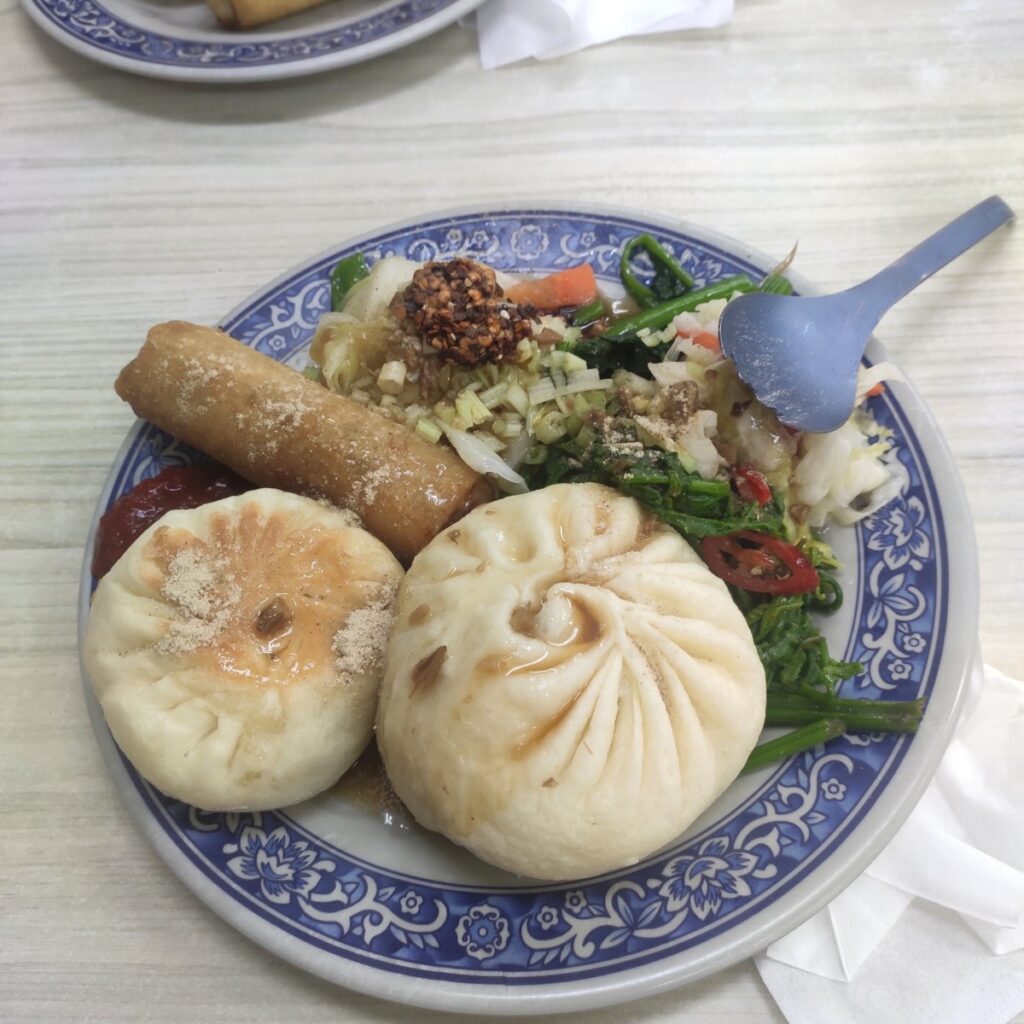
Lunch/Dinner.
Biàndang 便當. Bento box. Cardboard lunch box complete with meat, rice, and vegetables.
Xiaolongbao 小籠包. Soup dumplings.
Niúròu miàn 牛肉麵. Beef noodle soup.
Huǒguō 火鍋. Hot pot.
Gē bāo 割包. Taiwanese hamburger. Pork belly in a steamed bun.
Huǒ jīròu fàn 火雞肉飯. Turkey rice. The traditional dish in Chiayi.
Lǔ ròu fàn 滷肉飯. Braised pork rice.
Zhōu 粥. Congee. Hot porridge made from rice.
Snacks/Small Dishes/Street Food
Cōng yóubǐng 蔥油餅. Onion pancake.
Hézǐ jiān 蚵仔煎. Oyster omelette.
Xiāngcháng 香腸. Grilled sausage.
Niǎo dàn 鳥蛋. Fried quail eggs.
Chòu dòufu 臭豆腐. Stinky tofu.
Zòngzi 粽子. Sticky rice wrapped in banana leaves. A popular snack.
Where can you find work?
I have written a few articles about where you can find work if you want to switch jobs or want a new one.
Where can Certified Teachers Find Teaching Jobs Abroad?
How and Where to Find Work at Taiwan’s International Schools
